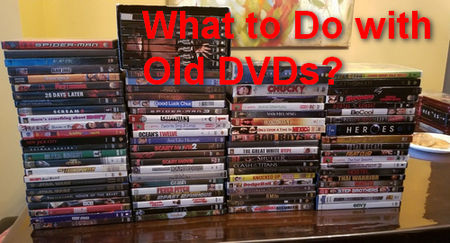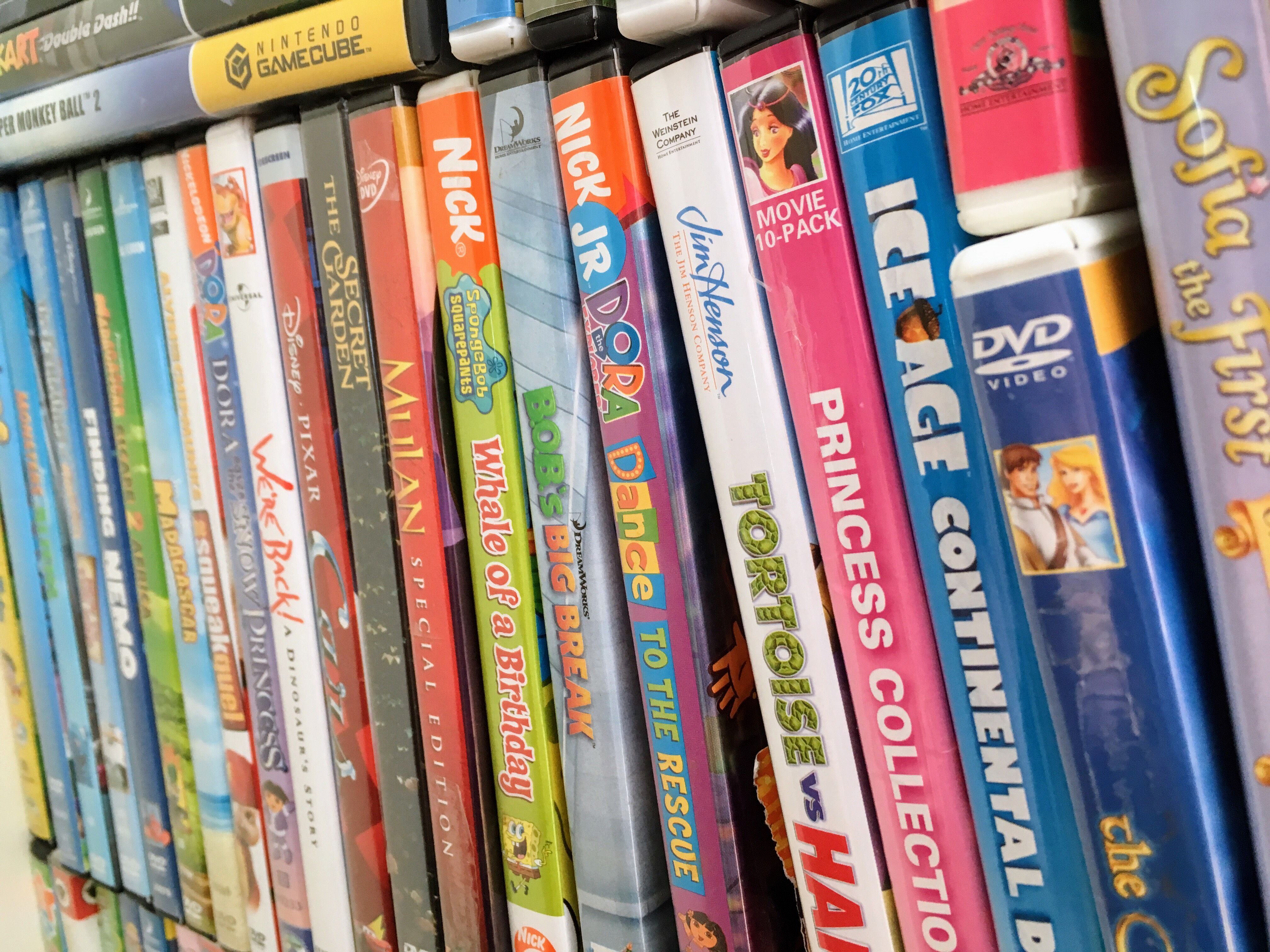Why Selling Your Old Media Makes Sense
Decluttering your media collection can have numerous benefits, from freeing up space in your home to reducing clutter and making some extra cash. One of the most effective ways to achieve this is by selling your old DVDs and CDs. Not only can you earn some money from items you no longer need or use, but you can also contribute to reducing waste and promoting sustainability. In fact, selling old DVDs and CDs can be a great way to recycle and reuse materials that would otherwise end up in landfills.
Many people hold onto their old media collections for sentimental reasons or because they think they might need them someday. However, with the rise of digital streaming services and online music platforms, it’s likely that you’ll never watch or listen to those old DVDs and CDs again. By selling them, you can declutter your space, reduce stress, and make some extra money that you can use to purchase new media or invest in other hobbies.
In addition to the personal benefits, selling old DVDs and CDs can also have a positive impact on the environment. The production and distribution of new media require significant resources and energy, resulting in greenhouse gas emissions and waste. By selling your old media, you can help reduce the demand for new products and promote a more sustainable consumption pattern.
Furthermore, selling old DVDs and CDs can be a great way to make some extra cash, especially if you have rare or collectible items. You can sell them online through marketplaces like Amazon or eBay, or locally through second-hand stores or garage sales. With a little effort and research, you can turn your old media into cash and enjoy the benefits of a decluttered and more sustainable lifestyle.
Preparing Your Media for Sale: Tips and Tricks
Before you can sell your old DVDs and CDs, you need to prepare them for sale. This involves cleaning and inspecting the discs, checking for scratches or damage, and gathering any original packaging or inserts. By taking the time to properly prepare your media, you can increase its value and attract more buyers.
Start by cleaning the discs using a soft cloth and a gentle cleaning solution. Avoid using harsh chemicals or abrasive materials that can scratch the surface of the disc. Next, inspect the discs for any scratches or damage. If a disc is scratched or damaged, it may be worth less to buyers, so be sure to disclose this information when listing the item for sale.
In addition to cleaning and inspecting the discs, you should also gather any original packaging or inserts. This can include the original case, liner notes, or artwork. Having these items can increase the value of the media and make it more attractive to buyers.
When preparing your media for sale, it’s also a good idea to research the item’s value. Check online marketplaces like Amazon or eBay to see what similar items are selling for. This will give you an idea of what price to list your item for and help you attract more buyers.
Finally, consider getting your media professionally appraised or graded. This can increase the value of the item and provide a third-party verification of its condition. However, be sure to research the appraiser or grading service to ensure they are reputable and trustworthy.
By following these tips and tricks, you can properly prepare your old DVDs and CDs for sale and increase their value. Whether you’re selling online or in-person, having well-prepared media can make all the difference in attracting buyers and getting a good price.
Where to Sell Your Old DVDs and CDs: Online Marketplaces and More
Once you’ve prepared your old DVDs and CDs for sale, it’s time to decide where to sell them. There are several options to consider, including online marketplaces, local second-hand stores, and garage sales. Each option has its own advantages and disadvantages, so it’s essential to research and choose the best option for your needs.
Online marketplaces like Amazon, eBay, and Decluttr are popular options for selling old DVDs and CDs. These platforms offer a vast customer base and competitive pricing, making it easier to sell your items quickly and for a good price. Additionally, online marketplaces often provide tools and resources to help you list and sell your items, such as pricing guides and shipping labels.
Another option is to sell your old DVDs and CDs to local second-hand stores. These stores typically buy used media and resell it to customers, often at a lower price than online marketplaces. However, second-hand stores may offer less money for your items, and the process of selling can be more time-consuming.
Garage sales and yard sales are also a great way to sell your old DVDs and CDs. These events allow you to sell multiple items at once and attract a local customer base. However, garage sales can be more time-consuming to organize, and the prices you receive may be lower than those offered by online marketplaces or second-hand stores.
Other options to consider include specialized marketplaces for rare or collectible DVDs and CDs, such as Discogs or MusicStack. These platforms cater to a specific audience and may offer higher prices for rare or hard-to-find items.
When choosing where to sell your old DVDs and CDs, consider the fees and commissions charged by each platform, as well as the target audience and pricing. By selecting the right option, you can maximize your earnings and efficiently sell your unwanted media.
How to Price Your DVDs and CDs for Sale
Pricing your DVDs and CDs competitively is crucial to selling them quickly and for a good price. To determine the optimal price for your items, research the market and use online pricing guides. Websites like Amazon, eBay, and Decluttr provide pricing information for used DVDs and CDs, which can serve as a benchmark for your pricing.
Start by checking the prices of similar items on online marketplaces. Look for completed listings to see what buyers are willing to pay for the same or similar items. You can also use pricing guides, such as the ones provided by Amazon or eBay, to get an idea of the average price for your items.
Another factor to consider when pricing your DVDs and CDs is their condition. If your items are in excellent condition, with no scratches or damage, you can charge a higher price. On the other hand, if your items are damaged or have scratches, you may need to lower the price to attract buyers.
It’s also essential to consider the rarity and demand for your items. If you have a rare or hard-to-find DVD or CD, you can charge a higher price due to its scarcity. Conversely, if you have a common item with low demand, you may need to price it lower to attract buyers.
When pricing your DVDs and CDs, be competitive but also realistic. Don’t overprice your items, as this can deter buyers. Instead, aim for a price that is slightly lower than the average market price to attract more buyers and increase the chances of selling your items quickly.
Finally, consider offering discounts or bundles to attract more buyers. For example, you can offer a discount for buying multiple items or bundle related items together. This can help increase the average sale price and attract more buyers to your listings.
The Best Time to Sell Your Old DVDs and CDs
The timing of selling your old DVDs and CDs can play a significant role in determining their sale price and demand. By understanding the best time to sell, you can capitalize on seasonal demand, new releases, and nostalgia-driven trends.
Seasonal demand is a crucial factor to consider when selling old DVDs and CDs. For example, during the holiday season, there is often a surge in demand for popular movies and music. Similarly, during the summer months, there may be a higher demand for outdoor and sports-related DVDs and CDs.
New releases can also impact the demand for old DVDs and CDs. When a new movie or album is released, it can create a renewed interest in older titles, especially if they are part of a series or franchise. By selling your old DVDs and CDs during this time, you can capitalize on the increased demand and potentially earn a higher price.
Nostalgia-driven trends are another factor to consider when selling old DVDs and CDs. As people reminisce about their childhood or younger years, they may seek out old movies and music that bring back fond memories. By selling your old DVDs and CDs during these times, you can tap into this nostalgia and potentially earn a higher price.
Additionally, consider selling your old DVDs and CDs during special events or anniversaries. For example, if a popular movie is celebrating its 20th anniversary, there may be a surge in demand for related merchandise, including DVDs and CDs.
By understanding the best time to sell your old DVDs and CDs, you can maximize your earnings and make the most of your unwanted media. Whether it’s seasonal demand, new releases, or nostalgia-driven trends, timing is everything when it comes to selling your old DVDs and CDs.
What to Do with Rare or Collectible DVDs and CDs
Rare or collectible DVDs and CDs can be a valuable addition to your media collection, but they can also be challenging to sell. If you’re looking to sell your rare or collectible DVDs and CDs, there are several options to consider.
First, research the value of your rare or collectible DVDs and CDs. Use online pricing guides, such as those provided by Amazon or eBay, to determine the average price for your items. You can also check with specialized marketplaces or collectors’ communities to get a better sense of the value of your items.
Once you have an idea of the value of your rare or collectible DVDs and CDs, you can start looking for buyers. Specialized marketplaces, such as Discogs or MusicStack, cater to collectors and enthusiasts who are looking for rare and hard-to-find items. You can also try selling your items to local record stores or second-hand shops that specialize in rare and collectible media.
Another option is to auction your rare or collectible DVDs and CDs. Online auction sites, such as eBay, can provide a platform for you to reach a wide audience of potential buyers. You can also try consigning your items to a local auction house or antique dealer who specializes in rare and collectible media.
When selling rare or collectible DVDs and CDs, it’s essential to provide detailed descriptions and high-quality photos of the items. This will help potential buyers understand the condition and value of the items, and can increase the chances of selling them for a good price.
Finally, consider getting your rare or collectible DVDs and CDs professionally appraised or graded. This can provide a third-party verification of the value and condition of the items, and can increase their appeal to potential buyers.
Tax Implications and Donations: What You Need to Know
When selling your old DVDs and CDs, it’s essential to consider the tax implications and potential deductions. In the United States, for example, you may be required to report the income from selling your old media on your tax return. You may also be eligible to claim deductions for the cost of selling, such as shipping and packaging expenses.
To report income from selling your old DVDs and CDs, you will need to complete a Schedule C form (Form 1040) and report the income as “other income.” You may also need to complete a Form 1099-MISC if you receive more than $600 in payments from a single buyer.
In addition to reporting income, you may also be eligible to claim deductions for the cost of selling your old media. This can include expenses such as shipping, packaging, and advertising. You can also claim a deduction for the original purchase price of the media, minus any depreciation.
Another option to consider is donating your unwanted media to charity. Donating to a qualified charitable organization can provide a tax deduction, which can help offset the income from selling your old media. To qualify for a tax deduction, the charity must be a 501(c)(3) organization, and you must receive a receipt or acknowledgement from the charity.
When donating your old media, it’s essential to keep accurate records of the donation, including the date, time, and location of the donation, as well as the fair market value of the media. You can use online resources, such as the IRS’s website, to determine the fair market value of your donated media.
By understanding the tax implications and potential deductions, you can make informed decisions when selling your old DVDs and CDs. Whether you choose to sell or donate your unwanted media, you can rest assured that you are making a positive impact on your finances and the environment.
Conclusion: Turning Your Old Media into Cash
Selling your old DVDs and CDs can be a great way to declutter your media collection, make some extra cash, and reduce waste. By following the tips and guidelines outlined in this article, you can successfully sell your unwanted media and turn it into cash.
Remember to prepare your media for sale by cleaning and inspecting the discs, checking for scratches or damage, and gathering any original packaging or inserts. Research the market value of your media and price it competitively to attract buyers.
Consider selling your media on online marketplaces like Amazon, eBay, and Decluttr, or at local second-hand stores and garage sales. You can also donate your unwanted media to charity and claim a tax deduction.
By selling your old DVDs and CDs, you can free up space in your home, reduce clutter, and make some extra cash. You can also help reduce waste and promote sustainability by recycling your unwanted media.
So why not start decluttering your media collection today and turn your old DVDs and CDs into cash? With a little effort and research, you can successfully sell your unwanted media and enjoy the benefits of a decluttered and organized media collection.






